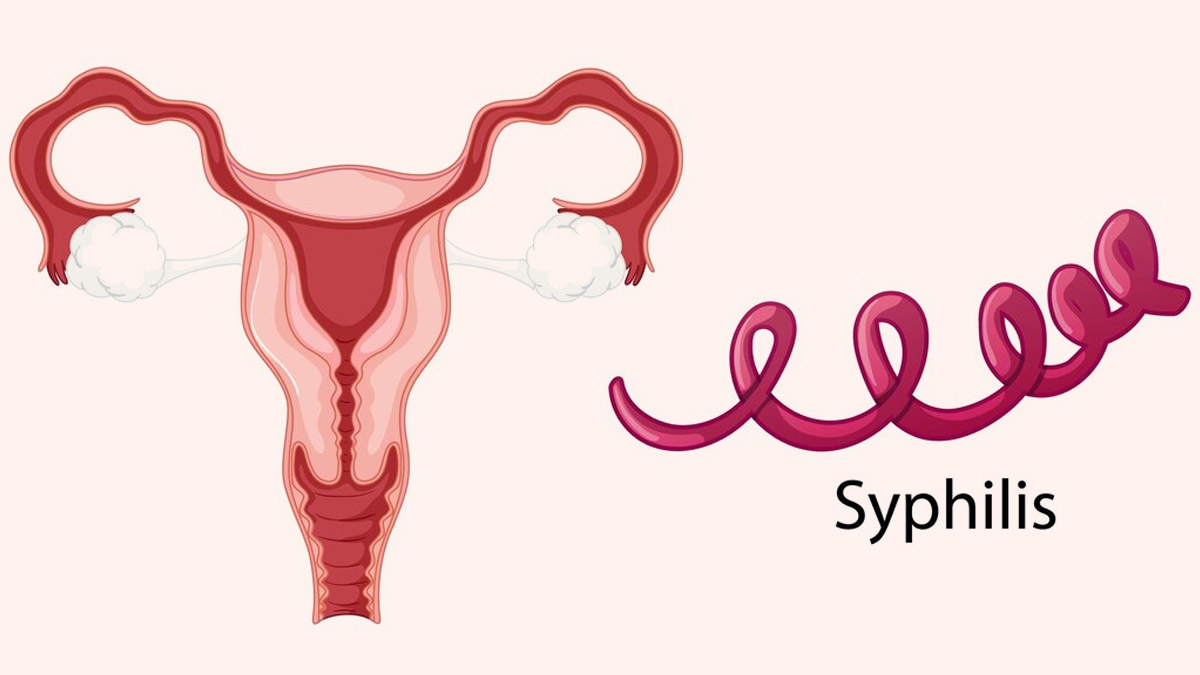
Treponema pallidum is the name of bacteria that causes syphilis. It is a sexually transmitted infection (STI). This infectious condition progresses in phases and, if not treated, can cause major health issues.
Table of Content:-
“This bacterial disease causes a sore which is initially minor and does not cause much discomfort, but it becomes uncomfortable with time and starts to interfere with your everyday activities. Syphilis infection can arise in several organs, including the rectum, sexual organs, the back, and inside the mouth. It appears to be a little ache at first, but it can quickly become rather serious,” said Dr Arun Goyala, Consultant and General Physician at Ivory Hospital, Greater Noida.
Different Stages Signs and Symptoms of Syphilis
Primary Stage Of Syphilis
Canker sores occurs during the primary stage of syphilis. As per Mayo Clinic, canker sores are small, shallow lesions that appear on the soft tissues in your mouth or at the base of your gums. Unlike cold sores, canker sores do not appear on the surface of your lips and are not contagious.

Also read: How To Know If You Have Syphilis: Can It Be Cured?
The infection begins with these painless sores, at the site of infection which is genital, anal, or oral. These sores are highly contagious but may go unnoticed.
Secondary Stage
Skin Rashes and Mucous Membrane Lesions: If untreated, syphilis progresses to the secondary stage, marked by a skin rash that may include palms and soles. Mucous membrane lesions can also occur in the mouth and genital areas.
Latent Stage
No Visible Symptoms are there in this stage. Syphilis may enter a latent stage where no visible symptoms are present. However, the bacteria remain in the body and can progress to the tertiary stage if untreated.
Tertiary Stage
According to Dr Goyala, this is the final and most severe stage of the syphilis infection. This is because, up to this point, the infection has spread to all possible regions of the body, approximately 15-30 percent. If you have not started therapy for this bacterial illness, there is a risk of consequences.

Tertiary syphilis can cause health complications, including damage to internal organs, the brain, nerves, eyes, heart, blood vessels, liver, bones, and joints.
How Syphilis Is Transmitted
Syphilis is primarily transmitted through direct contact with syphilis sores during vaginal, anal, or oral sex. Pregnant women with syphilis can transmit the infection to their unborn child, leading to congenital syphilis.
Also read: Syphilis On The Rise: Doctor Suggests Measures to Avoid And Treat this Ancient STD
A blood test is the most common method to diagnose syphilis. This test detects antibodies produced in response to the infection. Examination of syphilis sores under a microscope may also be performed.
How To Reduce The Risk of It
Consistent and correct use of condoms can reduce the risk of syphilis transmission. Routine testing for syphilis and other STIs is important, especially for people with multiple sexual partners.
Syphilis can be a potentially life-threatening infection, but it is curable with timely and appropriate treatment. Regular STI testing, practising safe sex, and open communication about sexual health are essential components of preventing and managing syphilis. If you suspect you may have been exposed to syphilis or are experiencing symptoms, seeking prompt medical attention is crucial for accurate diagnosis and timely treatment.
Also watch this video
Read Next
Columbia Study Finds 2,40,000 Nanoplastics In 1L Bottled Water: Here’s How It Can Damage Your Health
How we keep this article up to date:
We work with experts and keep a close eye on the latest in health and wellness. Whenever there is a new research or helpful information, we update our articles with accurate and useful advice.
Current Version